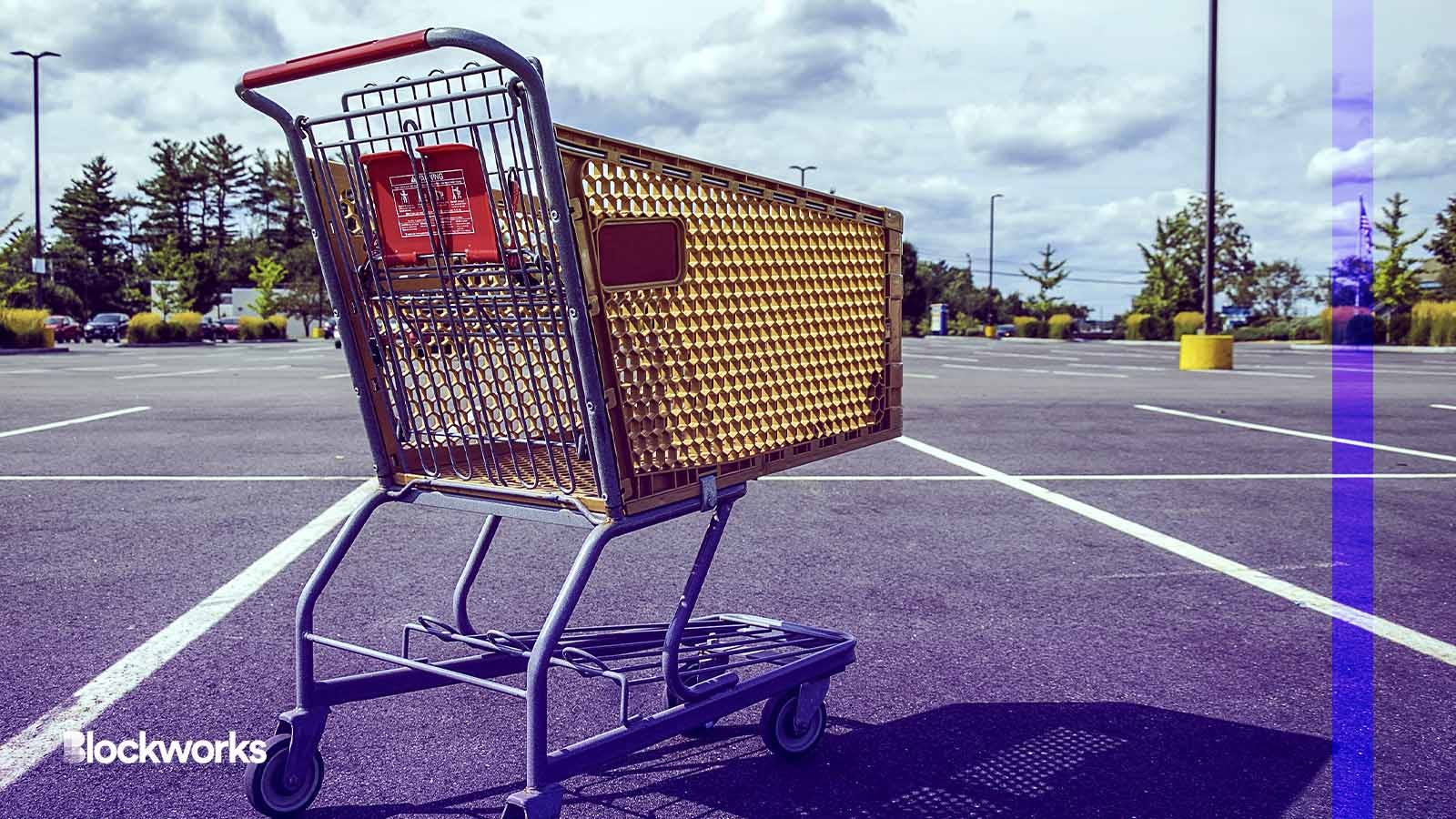Bitcoin is ‘on sale,’ Yusko says, but customers are running out of the store
Many barriers are currently in place to keep institutional investor hands off crypto, but that will soon change, says Yusko

KelseyJ/Shutterstock modified by Blockworks
The Bitcoin tidal wave is coming, Mark Yusko says.
The Morgan Creek Capital founder claims the combination of Bitcoin network’s upcoming halving event and the potential approval of BlackRock’s spot bitcoin ETF will bring “tens of billions, if not hundreds of billions of dollars of demand into the physical spot market.”
On the Forward Guidance podcast (Spotify/Apple), Yusko claims the current bias against the crypto industry that is prevalent among traditional investment entities is “all going to go away” following an ETF approval.
Many barriers are currently in place to keep institutional investor hands off crypto, but that will change, says Yusko. “No one’s going to be able to say no,” he says, “not UBS, not Merrill Lynch, no one.”
Read more: Delays mount: SEC defers ruling on BlackRock, Fidelity bitcoin ETFs
But sentiment has faltered considerably since the last crypto bull run, when many more institutional clients were clamoring for access, Yusko says. “They’re saying it less now than they did two years ago because people buy what they wish they would have bought.”
“Now that it’s on sale,” he says, “they run out of the store.”
In every “other business in the world” outside of stocks and crypto, people will “knock each other over” to snag a good deal, but investing exhibits the opposite behavior, Yusko says.
Podcast host Jack Farley observes, “demand for something is always highest at the top and lowest at the bottom.”
“Humans are really simplistic animals,” Yusko replies. “They buy what they wish they would have bought and they sell what they’re about to need.”
Volatility is your friend
Shifting the conversation to focus on stocks and bonds, Yusko claims the irrational behavior pattern is objectively observable over the long term. “Here’s the proof,” he says, citing JPMorgan twenty-year data that shows “stocks made eight and a half percent over that period compounded. Bonds made five and a half.”
“All you had to do,” Yusko says, was simply “pick one.” But over the same timespan, the average investor only made 2.9% gains, he says.
“How’s that possible?” he asks. “All you had to do is pick one, or a little of each.”
“No. They bought stocks when they were hot and sold them when they were not.”
Yusko argues that young investors should “embrace volatility” rather than playing it safe with “risk-free investments” like bonds.
“Literally, it should be against the law for people from 20 to 65 to own bonds,” he says. “If you’re 20 years old and you can’t touch the money for 50 years…you should be in the highest volatility asset.”
So-called “risk-free” investments still end up netting the cautious investor near-zero profits because “inflation chews up what you make,” Yusko says.
“Volatility is your friend.”
Get the news in your inbox. Explore Blockworks newsletters:
- The Breakdown: Decoding crypto and the markets. Daily.
- 0xResearch: Alpha in your inbox. Think like an analyst.






